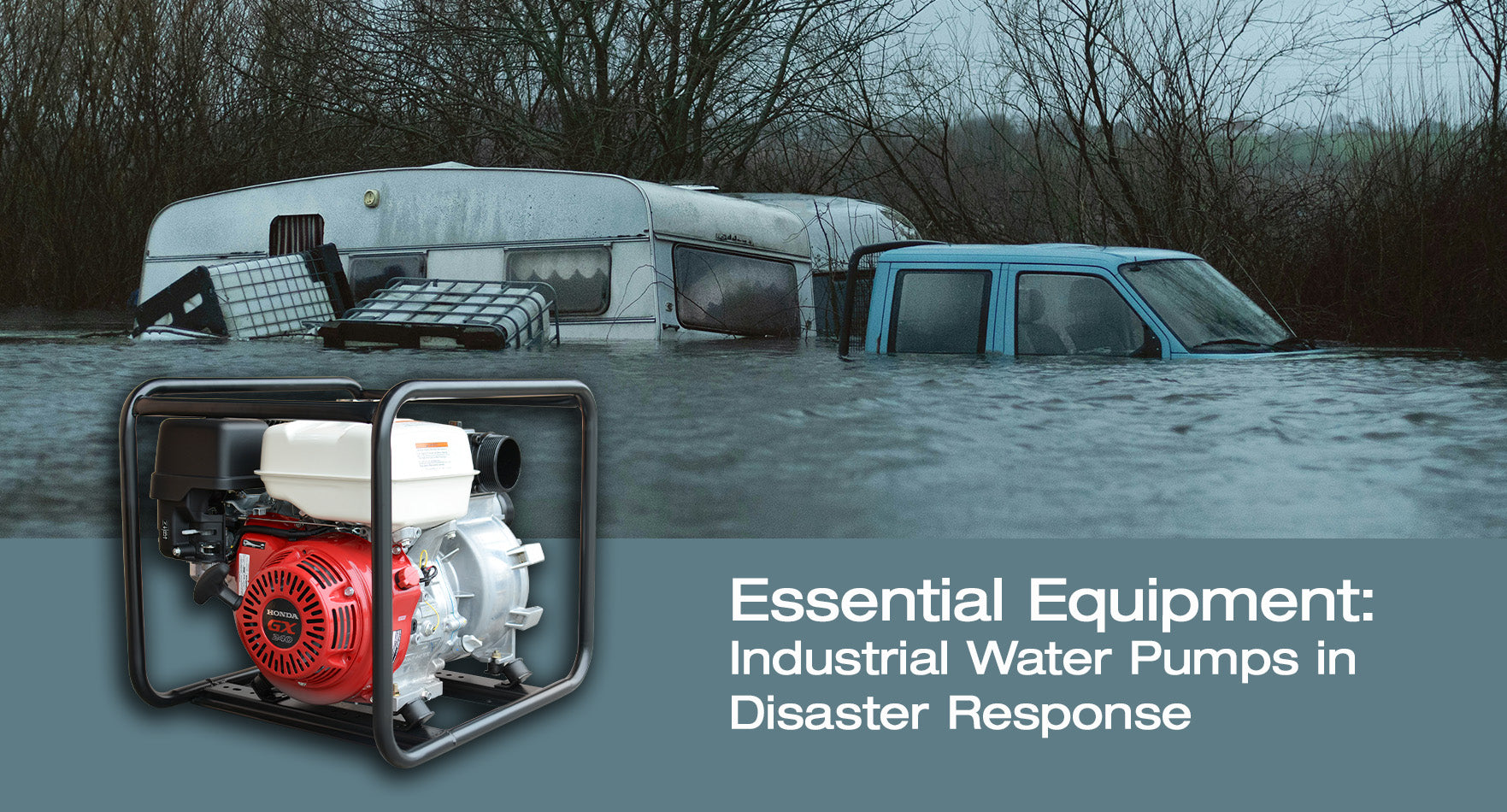Disasters, whether natural or man-made, often bring chaos, destruction, and a need for immediate response and recovery. Floods, hurricanes, and heavy storms can inundate communities, disrupt essential services, and pose significant health and safety risks. Among the arsenal of tools and equipment used in disaster response, industrial water pumps stand out as essential for managing water-related emergencies. In this blog, we explore the critical role of industrial water pumps in disaster response and how they contribute to saving lives and restoring normalcy.
The Importance of Industrial Water Pumps
Industrial water pumps are designed to handle extreme conditions and large volumes of water, making them indispensable in disaster response scenarios. Their primary functions include:
-
Floodwater Removal: In the aftermath of floods and hurricanes, rapid water removal is crucial to prevent prolonged flooding, which can lead to further damage and health risks.
-
Water Supply Restoration: Ensuring access to clean water is vital in disaster-stricken areas. Industrial pumps can help restore potable water systems by pumping and filtering water from alternative sources.
-
Wastewater Management: Managing sewage and contaminated water is critical to prevent disease outbreaks. Industrial pumps are used to transport and treat wastewater, ensuring sanitary conditions.
-
Firefighting Support: In cases where water pressure is low or fire hydrants are compromised, industrial pumps can provide the necessary water pressure to support firefighting efforts.
Types of Industrial Water Pumps Used in Disaster Response
Different types of industrial water pumps are utilized based on the specific needs and conditions of the disaster:
-
Centrifugal Pumps: Known for their efficiency in moving large volumes of water, centrifugal pumps are commonly used for general floodwater removal and water supply restoration.
-
Submersible Pumps: These pumps operate underwater and are ideal for dewatering basements, tunnels, and submerged structures.
-
Trash Pumps: Equipped to handle water containing debris, mud, and other solids, trash pumps are essential in flood situations where water is contaminated with various materials.
-
High-Pressure Pumps: These pumps are used when water needs to be moved over long distances or to higher elevations, such as in firefighting operations.
-
Diaphragm Pumps: Suitable for pumping viscous liquids and sludge, diaphragm pumps are often used in wastewater management and contaminated water removal.
Case Studies: Industrial Water Pumps in Action
Case Study 1: Hurricane Florence, North Carolina
In 2018, Hurricane Florence brought unprecedented rainfall and flooding to North Carolina. Industrial water pumps were deployed to drain flooded neighborhoods and restore essential services. In one instance, submersible pumps were used to clear flooded basements, while centrifugal pumps helped restore potable water systems in affected communities.
Case Study 2: Thailand Floods, 2011
The 2011 floods in Thailand caused widespread devastation, affecting millions of people. Industrial water pumps played a critical role in the response efforts. High-capacity centrifugal pumps were used to divert floodwaters away from populated areas, while trash pumps handled the debris-laden water. The prompt deployment of these pumps helped mitigate the impact and accelerate recovery.
Innovations and Advancements in Pump Technology
As the frequency and intensity of natural disasters increase, the demand for more efficient and reliable industrial water pumps has led to significant innovations:
-
Portable Pump Units: These compact, mobile units can be quickly deployed to disaster sites, providing immediate response capabilities.
-
Solar-Powered Pumps: In areas where power infrastructure is compromised, solar-powered pumps offer a sustainable and reliable solution for water management.
-
Automated Systems: Advanced pump systems equipped with sensors and remote monitoring capabilities allow for real-time management and optimization of water removal and supply operations.
-
Enhanced Durability: Modern pumps are designed to withstand harsh conditions and extended use, ensuring they remain operational throughout the disaster response period.
Industrial water pumps are an essential component of disaster response efforts, providing the necessary power and efficiency to manage water-related emergencies. From floodwater removal to wastewater management and firefighting support, these pumps play a critical role in saving lives and restoring order. As we face increasing challenges from natural disasters, investing in advanced pump technology and infrastructure will be key to enhancing our preparedness and resilience.










